On September 3, Israel's far-right finance minister Bezalel Smotrich outlined his proposal to annex 82 percent of the occupied West Bank. During a press conference in Jerusalem, he presented a map that delineated the new borders of the state of Israel, leaving the Palestinian Authority with the management of just six large cities in the occupied West Bank.
Smoltrich’s project is part of the Israeli government’s effort to extend its sovereignty over the occupied West Bank and comes after several Western countries, including France, decided to recognise a Palestinian state.
Israeli Prime Minister Benjamin Netanyahu on September 11 visited Ma’ale Adumim, one of the largest settlements in the occupied West Bank to announce to the settlement’s 40,000 inhabitants that his government approved its expansion. “There will be no Palestinian state. This place belongs to us,” Netanyahu added.
Eight days later, the day before Sabbath and the Jewish new year, the residents of the settlement – which has grown into the size of a small city – flocked to the supermarket to prepare for family celebrations.
‘Everything must be done to prevent the creation of a Palestinian state’
Dany Hadar, carrying a shopping bag and wearing a kippah, approved of Netanyahu's decision. Hadar, now retired, has lived in Ma’ale Adumim for 40 years and said the expansion “should have been carried out at least ten years ago”.
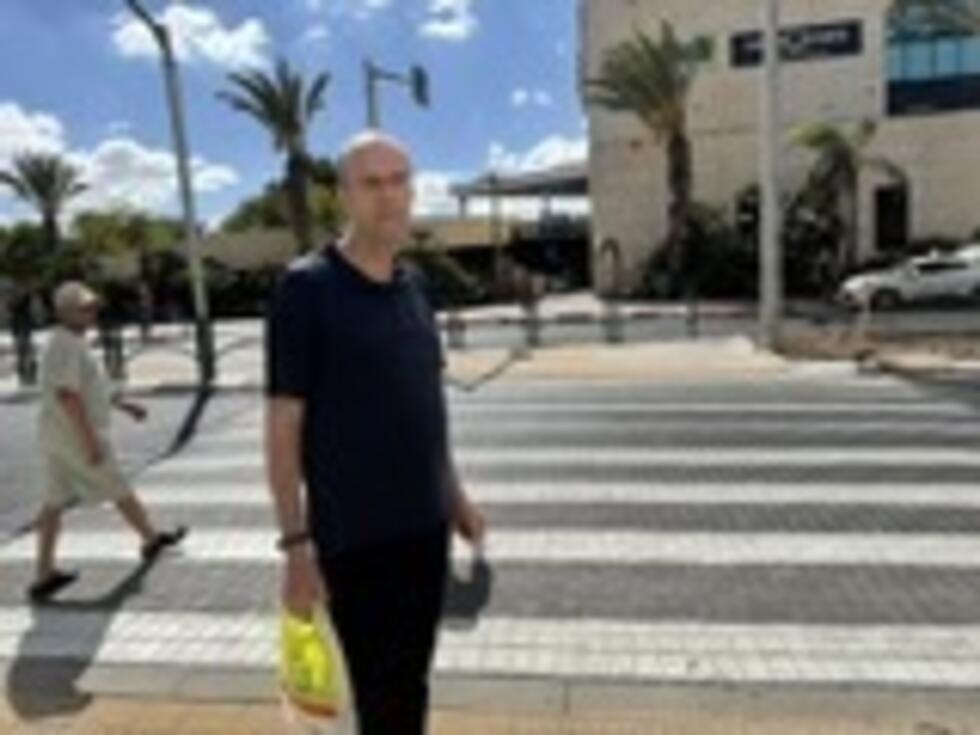
Eda, a resident encountered near the small shopping centre, said the government’s decision was much anticipated by the residents, because “since October 7, 2023, we need to reinforce our security and connect to Jerusalem”.
Eda was fully aware that the project to expand her city, the third largest settlement in the West Bank, has been strongly criticised by the international community. Yet she insisted that “we must do everything we can to prevent the creation of a Palestinian state, because they don’t want us, wherever we are. We know they don’t want peace. We already tried. Now we have to build and get on with our lives."
Hadar agreed, adding that there was no point in “looking back, no matter what other countries say about us”.
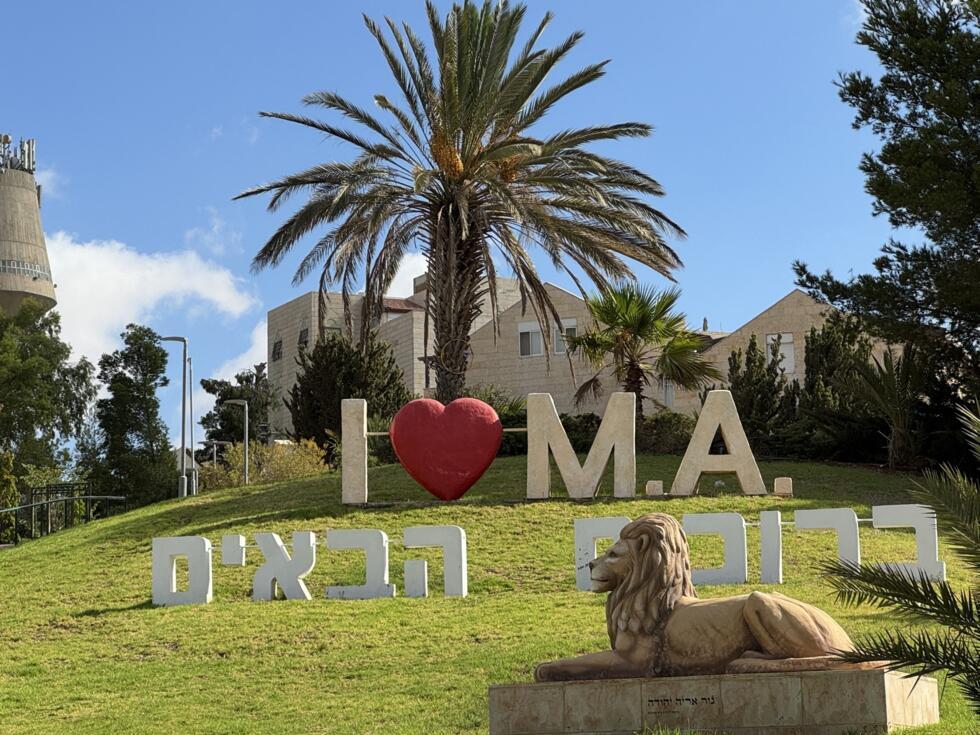
The Israeli government's green light to expand Ma’ale Adumim was a clear response to France and other Western countries' decision to formally recognise a Palestinian state.
In a show of their rejection of this announcement, Netanyahu and Smotrich – who is also in charge of civilian affairs in the occupied West Bank – chose to endorse an old project to expand Jewish settlements in the occupied West Bank known as E1. The acronym refers to the 12 square kilometres of land located between Ma’ale Adumim and Jerusalem, “the first parcel of land east of Jerusalem” (East 1).
Blocked since the mid-2000s because of opposition from the US, the project aims to build 3,400 housing units and create a block of settlements that would extend towards the Jordan Valley. For the United Nations (UN), the E1 project “would divide the north and south of the occupied West Bank and have serious consequences for the territorial contiguity of the occupied Palestinian territory".
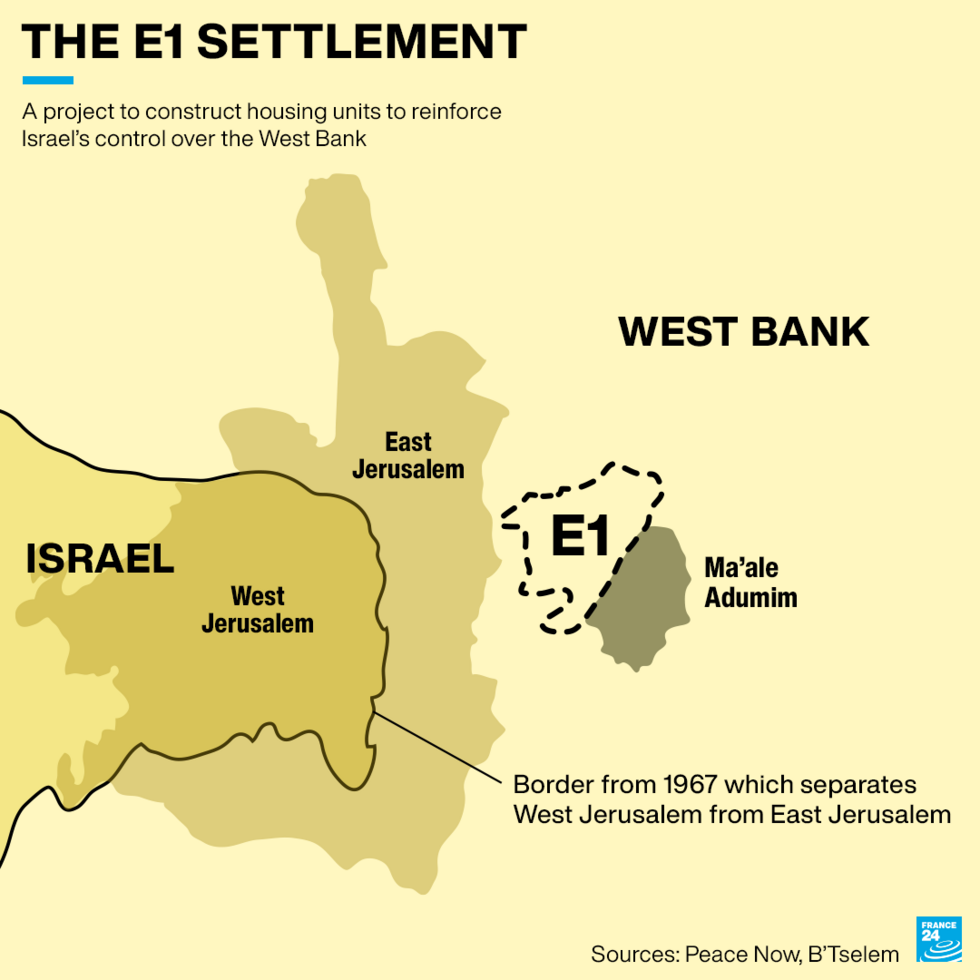
Guy Ifrah, Ma’ale Adumim's young mayor, hailed his government’s decision to move forward with the E1 project. “E1 is located within municipal boundaries. We aren’t taking land from anyone. It’s false to say the construction of E1 will break the territorial continuity between Palestinian cities. I don’t deny the fact that there is a Palestinian population that lives in Judea and Samaria [the biblical name often used in Israel to refer to the West Bank, editor’s note]. But there are two roads being constructed east of Ma’ale Adumim which will allow Palestinians to move around without checkpoints.” These roads will still force Palestinian neighbours to make a 15-kilometre detour to reach Jerusalem.
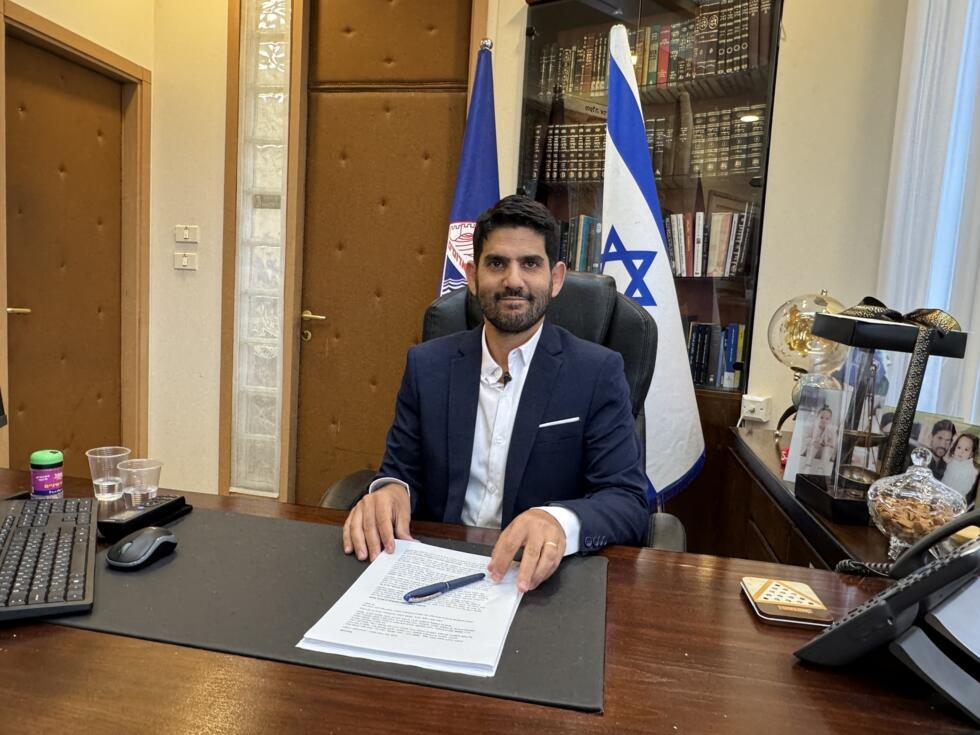
Born in Ma'ale Adumim 43 years ago, Ifrah does not wear a kippah and described himself as "a believer, but not religious". A member of the Likud party, the mayor said his priority was to “enable future generations to live in Ma'ale Adumim. The E1 project will allow 15,000 more people to join us. There will be subsidies for residents, as well as for reservists who sacrificed two years of their lives with the war in Gaza."
Deny the illegal nature of settlements
For Israeli lobbyists who aim to increase the presence of Jewish settlements in the West Bank, the approval of the E1 project is a major political victory.
Naomi Kahn, spokesperson for the pro-settlement movement Regavim, believes that "the E1 project was delayed for too long. There are no Arabs living on this land.’ This claim is disputed by the UN, which states that "the area in question is currently inhabited by approximately 5,000 Palestinians".
Kahn also argued that the “State of Israel should not be required to ask for permission from anyone to exploit the land resources at its disposal in Area C [of the West Bank]”. The area makes up around 60 percent of the occupied West Bank placed under Israeli transitional control under the Oslo Accords.
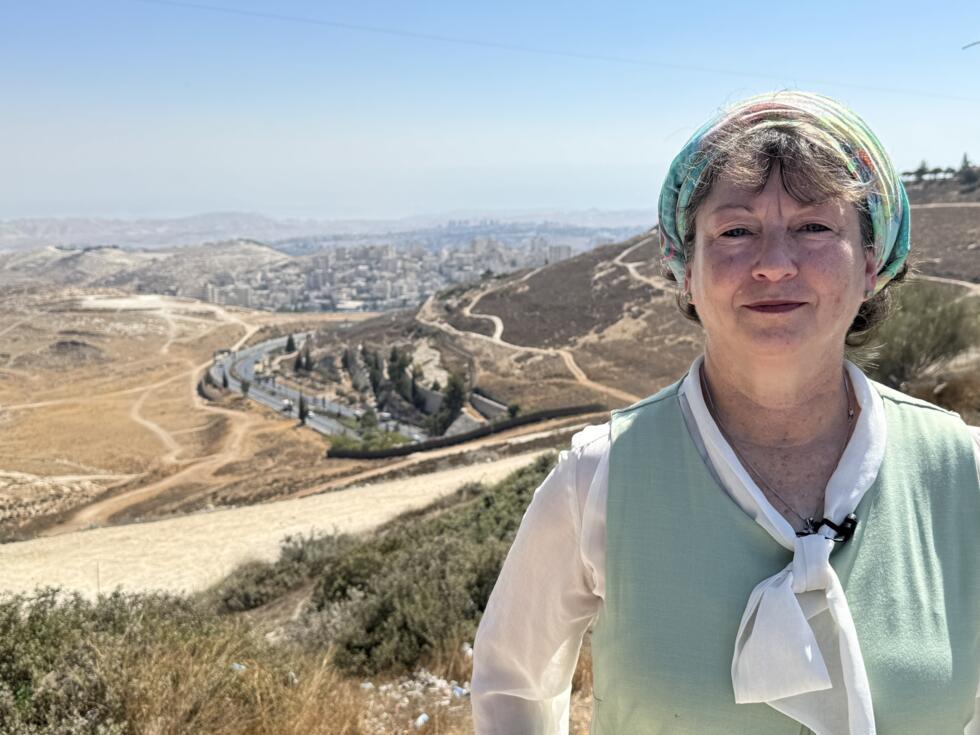
A proponent of a "Greater Israel" which extends "from the river to the sea", Kahn refuted accusations of colonisation, and presented her own particular interpretation of international law. "It is absurd to say that Israel has been illegally occupying the West Bank since 1967," she said. The West Bank has been a "disputed territory" since the fall of the Ottoman Empire in 1922, she added.
"Since 1922 the eastern border of Israel has been the Jordan River," the activist claimed. In 1948, Jordan invaded the occupied West Bank, an act that was condemned by all nations [except two], because Israeli sovereignty was recognised by everyone."
Read moreTimeline: The state of Palestine’s long road to recognition
Based on this interpretation of history, Kahn’s pro-settler movement denies any Palestinian claim to sovereignty in the West Bank. The movement has even created a map of "illegal Palestinian settlements in the West Bank", arguing that the E1 project aims to allow Israelis to move freely in the occupied territories.
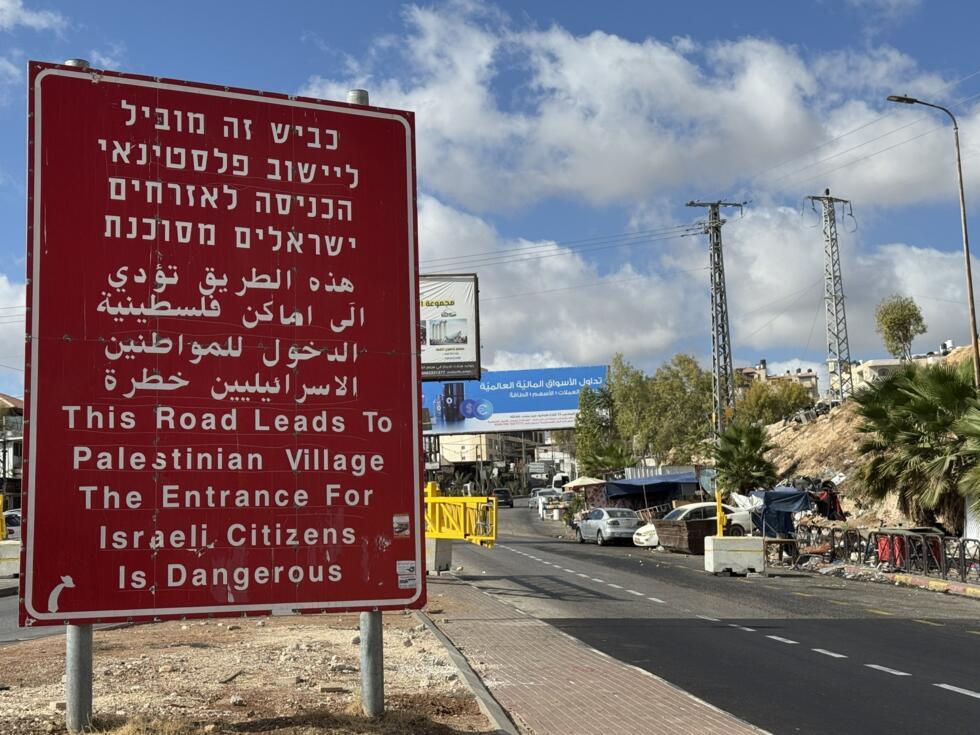
‘Recognising a Palestinian state is a moral and political error’
When asked about France's recognition of Palestine, Kahn said that "recognising a Palestinian state is a moral and political mistake. It means supporting a terrorist entity that has vowed to destroy the Jewish people. It is shameful that Western democracies support the creation of a racist, misogynist, Islamist state that has no chance of success."
A few kilometres away, a small group of settlers that seized a hill in the West Bank between Bethlehem and Jerusalem six years ago, shared the spokeswoman’s convictions.
Lior Tal, the head of a settlement of 19 families, slammed France’s diplomatic gesture in much harsher terms. “If the Western countries want to recognise a Palestinian state, fine. But let them do it at home, in Europe,” he said. Israeli sovereignty is not up for debate, he added, and Palestinians should go and live, “in an Arab country; there are plenty of them”.
Tal has been known for his violent words and actions for many years. Yet the Israeli government on May 29 legalised 22 illegal settlements (often called “outposts”) including the one where he lived.
Tal now hopes the government's decision means that houses, roads, and other infrastructure will be built in the coming years. "I’m hoping 600 families will settle here," he said.
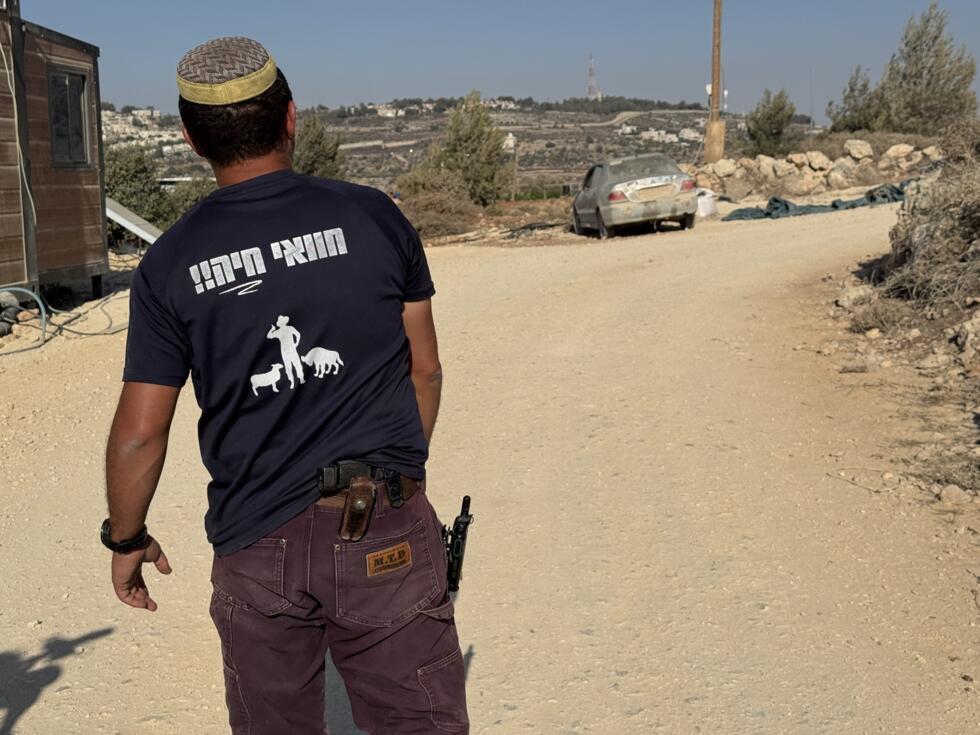
Focused on tending to his sheep and studying the Torah, Tal has a radical and mystical view of Israeli settlement in the occupied West Bank. He is not afraid of clashes with his Palestinian neighbours, asserting that “the land of Israel is the land of Jews. It’s our land. We were here during the time of the Second Temple [between 516 BC and 70 AD]. There is archaeological evidence to prove it. We also know that there were vineyards here at that time. Islam destroyed them and replaced them with olive trees. We replanted vineyards to mark our rebirth. I am here to cultivate the land of Israel and preserve it."
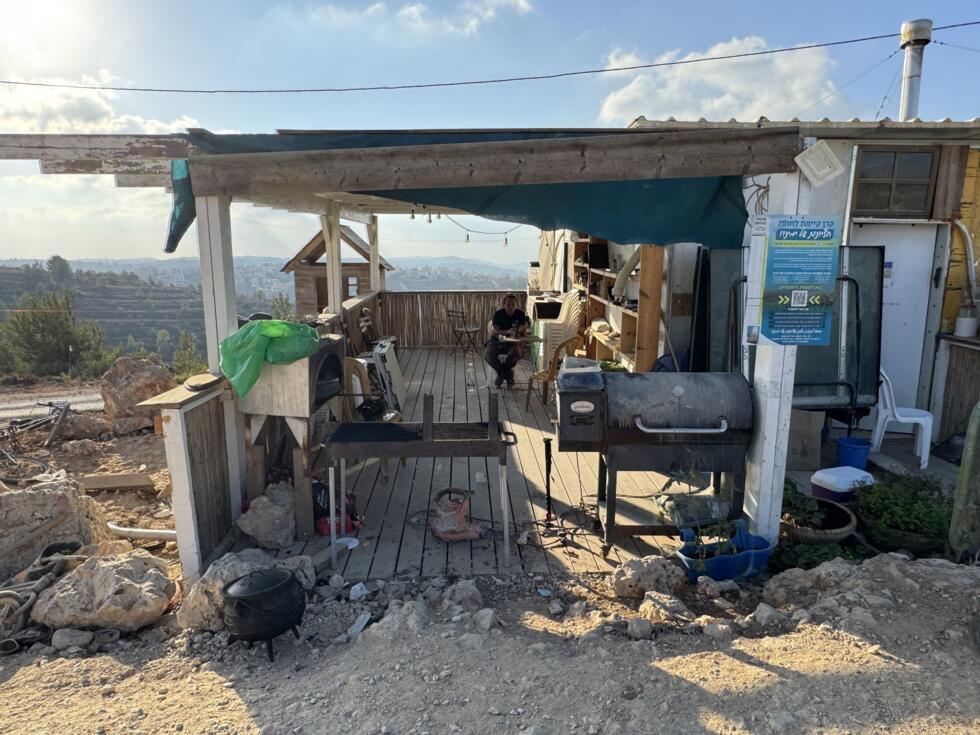
Since the October 7, 2023 attacks and the massacre committed by Hamas on Israeli territory, Netanyahu and Smotrich have been in a race against time to increase the number of Jewish settlements in the occupied West Bank. The number of illegal settlements is also skyrocketing: 32 were established in 2023, 61 in 2024, and 58 were built during the first six months of 2025 alone.
Expressing deep concern, the Israeli peace organisation Peace Now stated in a press release that, “by relentlessly pursuing this project, the Israeli government is undermining any possibility of a political solution and dragging Israelis and Palestinians into a cycle of endless conflict".
In favour of a two-state solution, the organisation estimates that 141 Israeli settlements were officially recognised by the government in the occupied West Bank at the end of 2024, and the approval of the E1 plan has buried "the hope of a peaceful future for both nations".
After nearly two years of war on multiple fronts in the Middle East, Netanyahu and the settler movement are reaffirming their refusal to recognise a Palestinian state, week after week and without any ambiguity. The government is simultaneously accelerating its colonisation of the occupied West Bank, leaving just a few scraps of territory for a moribund Palestinian Authority.



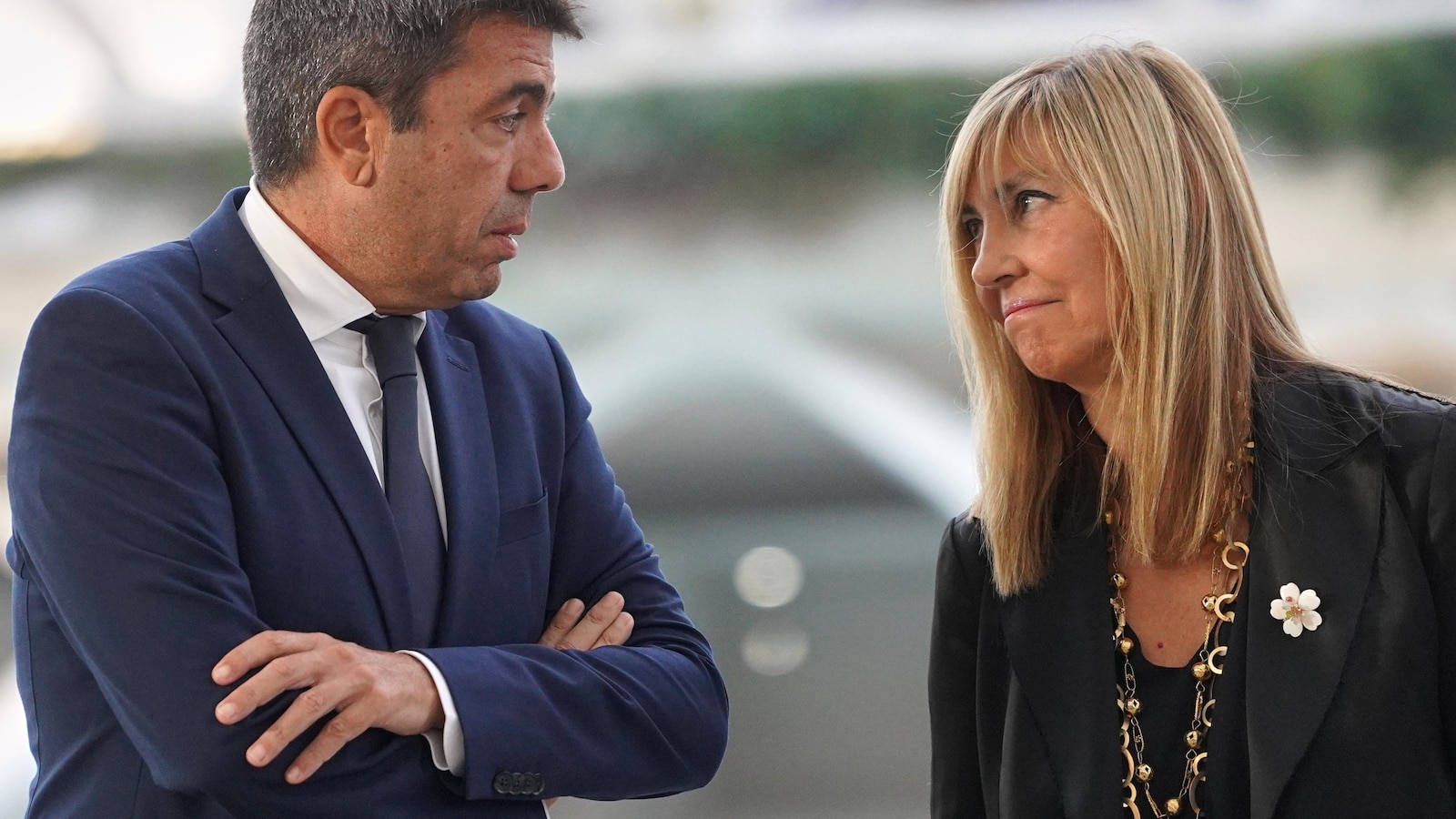

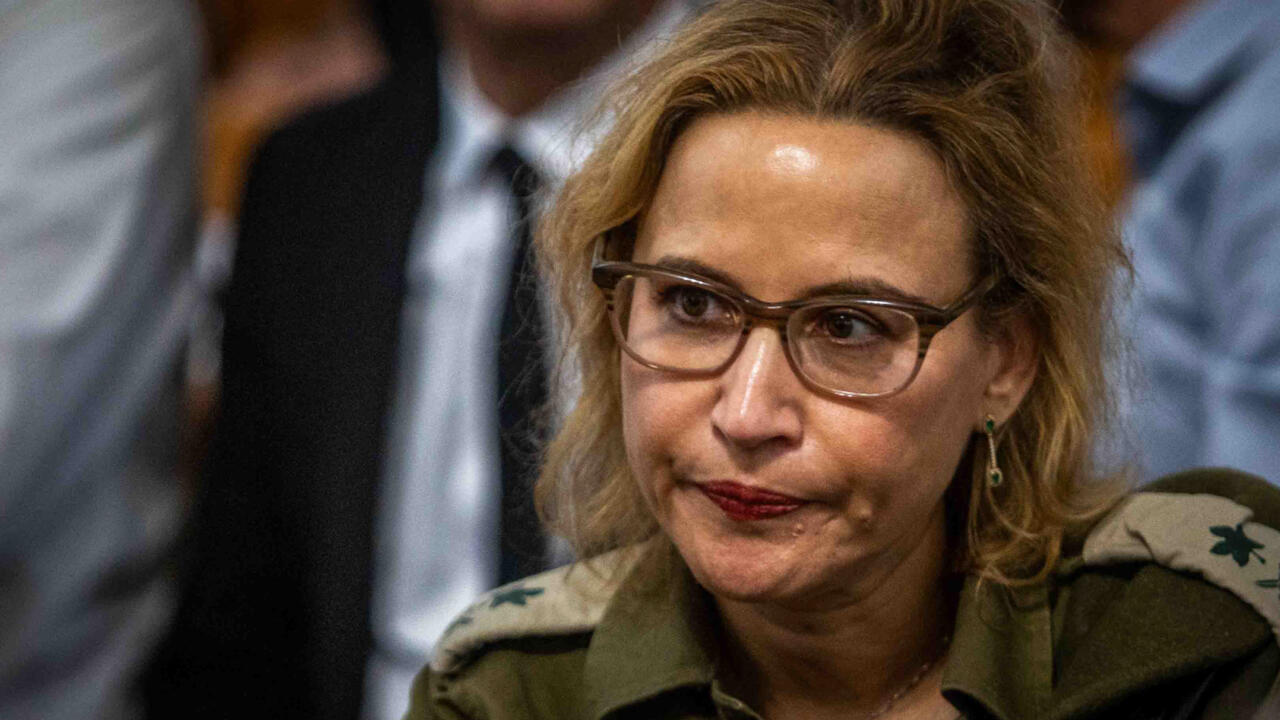


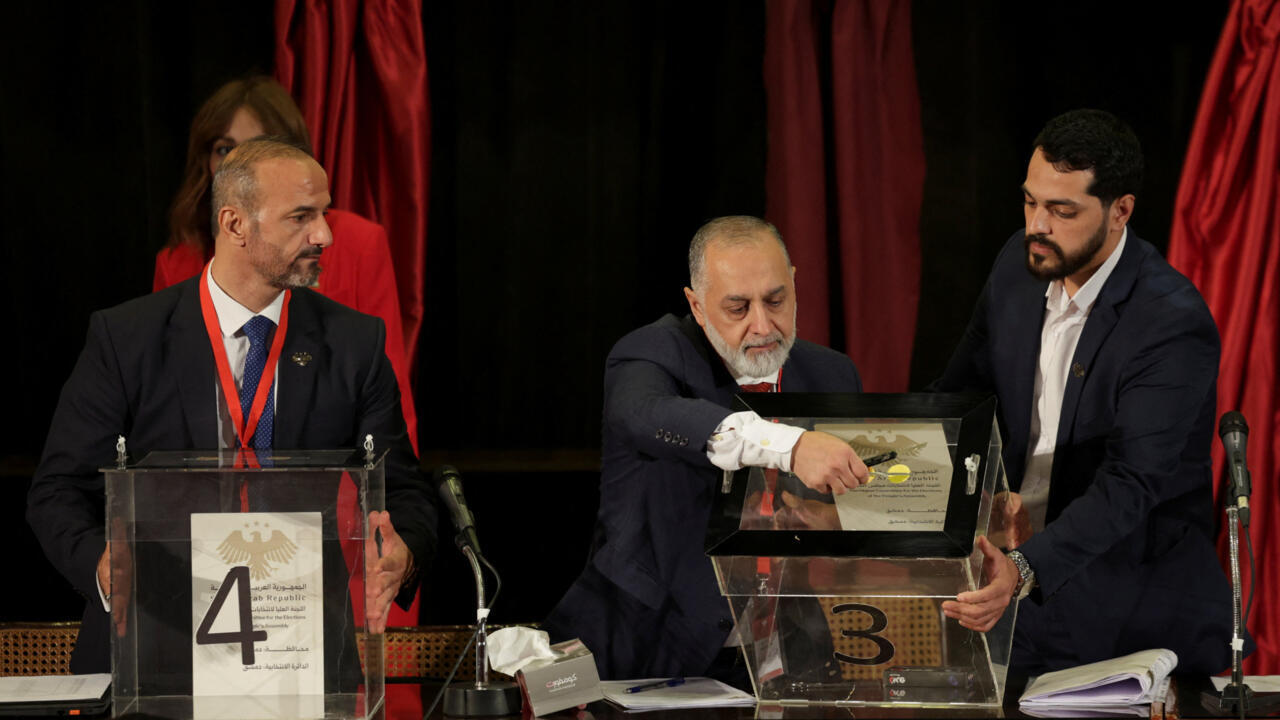
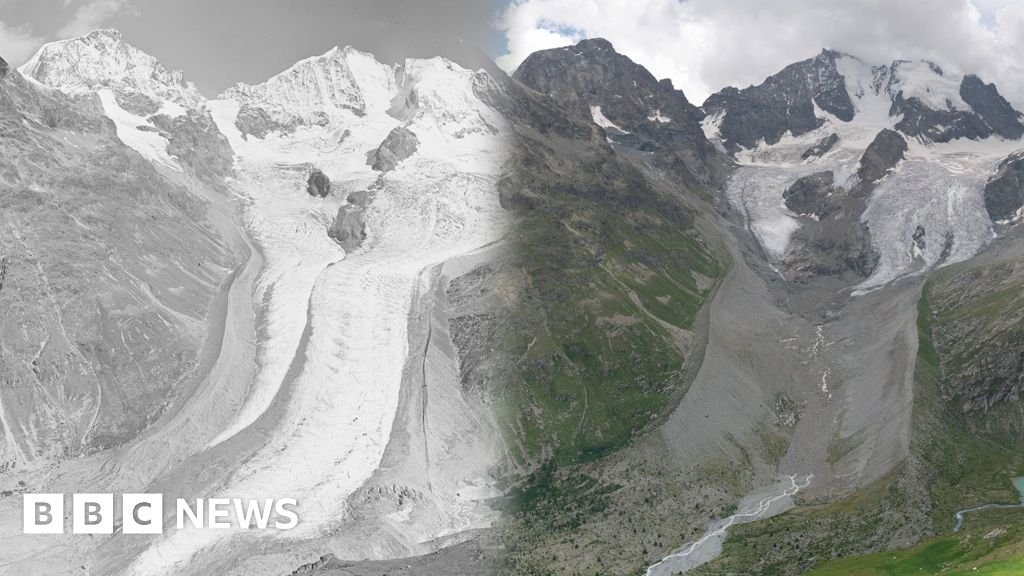

 English (US) ·
English (US) ·